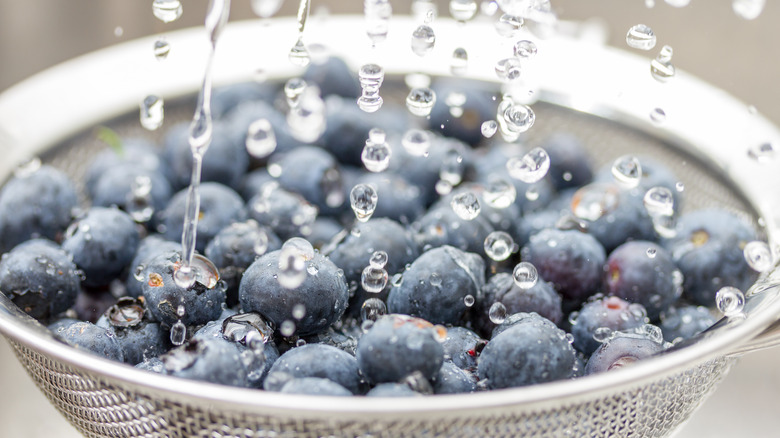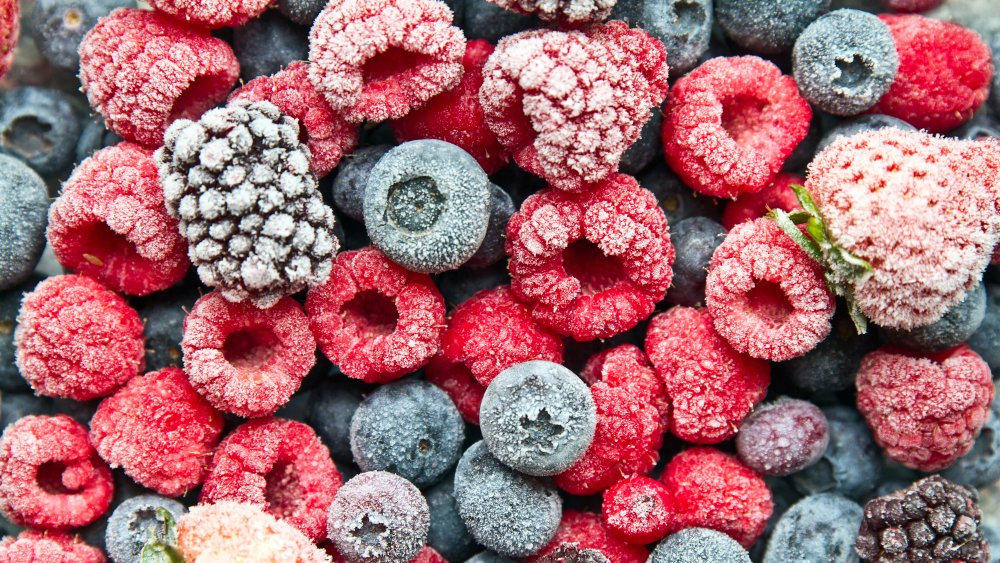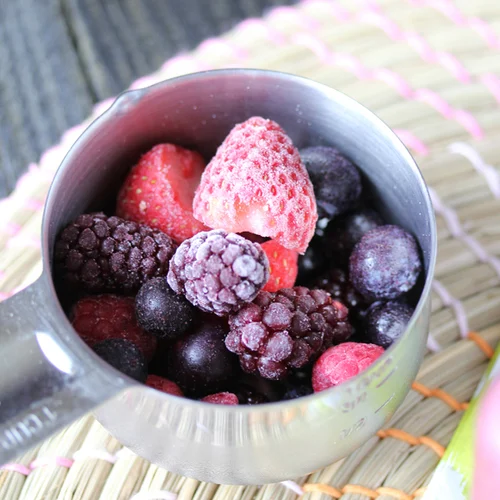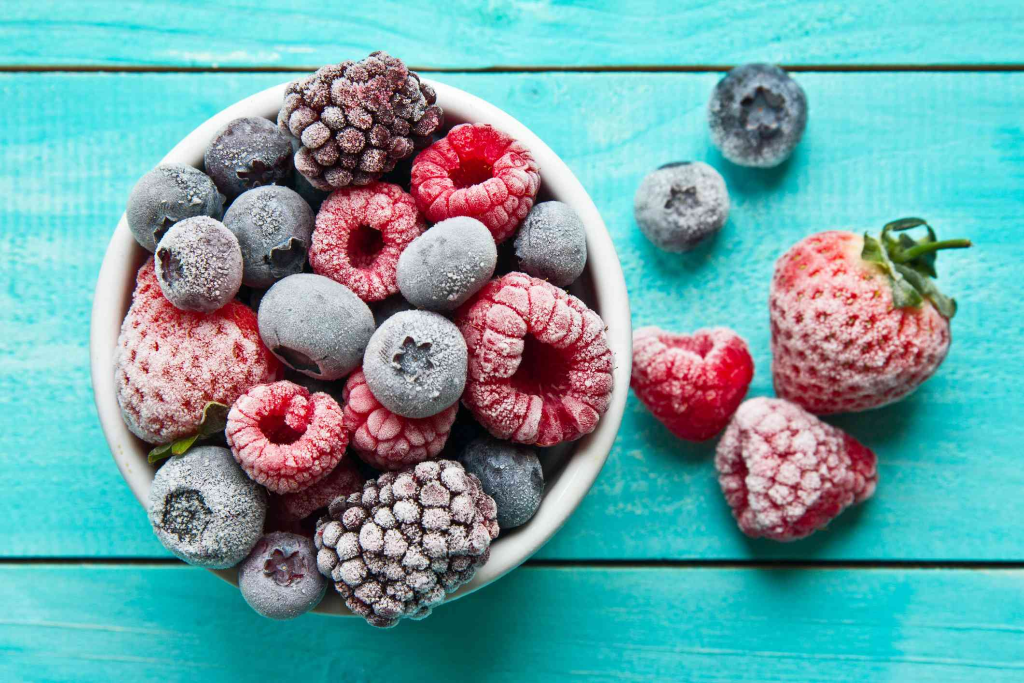Frozen berries are a staple in many households. Whether you’re whipping up a quick smoothie, topping your morning oatmeal, or baking a delicious dessert, they’re incredibly convenient and packed with nutrients. But one question divides berry enthusiasts: Should frozen berries be rinsed before use?
Some people firmly believe that the freezing process eliminates harmful bacteria, making washing unnecessary. Others argue that rinsing is essential for safety. So, what’s the truth? Let’s dive into the science behind frozen berries and food safety to find out.

The Freezing Process: How It Affects Bacteria
To understand whether rinsing frozen berries is necessary, we need to examine how freezing impacts bacteria. Freezing is a common method of preserving food because it significantly slows down microbial growth. When berries are frozen, the water inside their cells turns into ice crystals. This process inhibits the activity of bacteria, yeasts, and molds, effectively pausing their ability to multiply.
However, there’s a common misconception: Freezing does not kill bacteria. It merely puts them in a dormant state. Once the berries thaw, any surviving bacteria can become active again. This means that if the berries were contaminated before freezing, the risk remains when you use them later.
Video: How to Thaw Frozen Berries
Does Freezing Eliminate Harmful Bacteria?
While freezing can reduce the number of some bacteria, it’s not a guaranteed method to make food safe. Certain pathogens, such as Listeria monocytogenes, can survive freezing temperatures. Once thawed, they may become active and potentially cause foodborne illness.
In recent years, outbreaks linked to frozen berries have involved pathogens like norovirus and hepatitis A. These incidents remind us that frozen foods, especially those consumed raw, still carry a risk. Simply put, freezing may slow bacterial growth, but it doesn’t sterilize the berries.
Why Washing Berries Is Important
Given the potential risks, washing berries before eating them makes sense. Even frozen berries can harbor contaminants such as dirt, pesticides, and bacteria. Although most frozen berries are pre-washed before packaging, this process doesn’t guarantee complete safety.
If you’re blending frozen berries into a smoothie or eating them raw, rinsing is a simple way to reduce potential contamination. After all, these berries won’t go through any cooking process that could kill bacteria.
What Are the Risks of Not Washing Frozen Berries?

Consuming unwashed frozen berries can expose you to various foodborne illnesses. In the past, outbreaks linked to frozen berries have involved pathogens that cause gastrointestinal issues, including diarrhea, stomach cramps, and fever.
For instance, in 2016, frozen strawberries imported to the United States caused an outbreak of hepatitis A, leading to multiple hospitalizations. Similarly, other instances of norovirus contamination have been traced back to frozen berries.
Given these real-world examples, it’s clear that rinsing frozen berries is a wise precaution, particularly if you plan to consume them without cooking.
Expert Opinions: Should You Rinse Frozen Berries?
Food safety experts overwhelmingly agree: It’s better to rinse frozen berries before eating them. While some argue that washing can affect the texture of the berries, the consensus is that the minor inconvenience is worth the increased safety.
According to the Centers for Disease Control and Prevention (CDC), it’s essential to wash all fresh produce, including frozen varieties, to reduce the risk of contamination. Even if the berries are labeled as “ready-to-eat,” rinsing them under cold running water before use is a good practice.
Some nutritionists also point out that while rinsing might slightly alter the texture, especially when berries start to thaw, the safety benefits far outweigh the aesthetic drawbacks.
How to Properly Rinse Frozen Berries

If you decide to rinse your frozen berries, it’s essential to do it correctly to maintain their quality and reduce potential risks. Follow these simple steps:
- Do Not Thaw Completely: Rinse the berries while they’re still slightly frozen to maintain their shape.
- Use Cold Running Water: Place the berries in a colander and rinse them under cold water for about 20-30 seconds.
- Drain Well: Shake off excess water and let the berries drain before using them.
- Pat Dry (if necessary): If using them in a dry recipe like baking, lightly pat the berries with a paper towel to remove excess moisture.
This quick rinse can significantly reduce the number of bacteria present while minimizing the impact on texture.
Frozen Berries in Smoothies: Extra Precautions
Smoothies are one of the most popular ways to consume frozen berries. Since you’re not cooking the berries, it’s even more crucial to take food safety seriously. Start by rinsing the berries as outlined above.
If you’re using a high-powered blender, it will help break down the berries, but it won’t eliminate bacteria. To minimize risk, consider combining the berries with ingredients like yogurt or citrus juice, which contain natural antibacterial properties.
Some smoothie enthusiasts also choose to briefly boil frozen berries before blending. This process can help eliminate potential bacteria without significantly affecting the taste or texture when mixed with other ingredients.
Balancing Convenience with Safety

Frozen berries are beloved for their convenience. They’re available year-round, relatively affordable, and packed with vitamins and antioxidants. Still, food safety shouldn’t take a back seat to convenience.
By making it a habit to rinse your frozen berries before use, you can enjoy their benefits without worrying about potential contamination. It’s a small step that makes a big difference, especially when using berries in dishes that won’t be cooked.
Conclusion: A Simple Step for Peace of Mind
In the debate over whether to rinse frozen berries, science and safety come down on the side of caution. While the freezing process does reduce bacterial activity, it doesn’t eliminate all risks. Rinsing your berries before using them, especially in raw applications like smoothies, is a simple, effective way to protect your health.
So, the next time you reach for that bag of frozen berries, take a moment to give them a quick rinse. It’s an easy habit to develop and one that can help you enjoy your favorite berry-based treats with greater peace of mind. Balancing convenience with food safety ensures that you can savor your smoothies, desserts, and snacks without worry.


